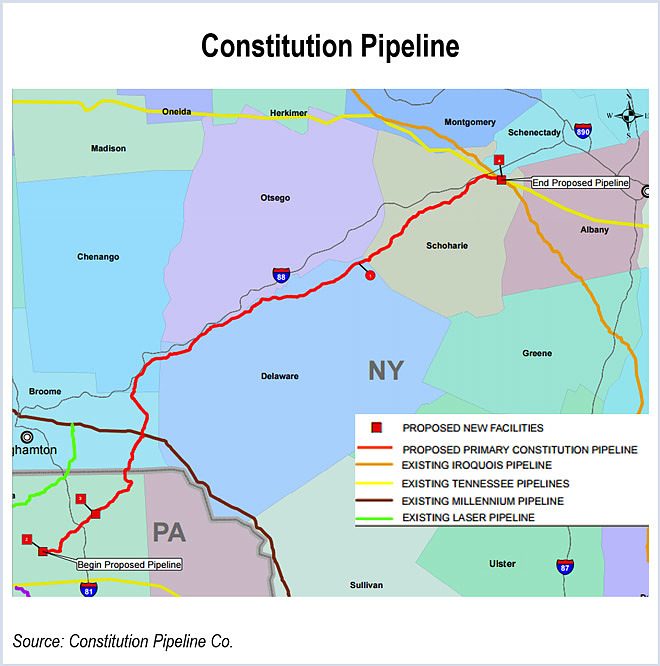Constitution Pipeline Rejected! Second Circuit Court of Appeals Affirms States’ Power to Reject Pipelines
By: Larissa Liebmann

Today, the Second Circuit Court of Appeals denied a petition from Constitution Pipeline Company and, in the process, upheld the authority of states to reject projects that impact state water quality standards. This victory is an important reminder to all states that they have the power to stop harmful pipeline projects. Waterkeeper Alliance joined an Amicus Brief with NRDC and other groups that supported the New York State Department of Environmental Conservation’s (DEC) decision and urged the court to deny the company’s petition.
The pipeline company sought to overturn the New York State DEC’s denial of a “Section 401 Water Quality Certification” for the Constitution Pipeline. Section 401 of the Clean Water Act reserves authority to the states to determine whether a federally-approved project will adversely impact water quality. If the project will not cause or contribute to violations of state water quality standards, the state issues a “401 Certification” allowing the project to go forward. The proposed Constitution Pipeline was a 124-mile natural gas pipeline that would have impacted 251 streams, nearly 500 acres of forests, and over 85 acres of wetlands in New York State.
During DEC’s Section 401 review of the pipeline, it found that the company did not provide enough information to assure the agency that the pipeline would comply with New York’s Water Quality Standards. The DEC ultimately declined to issue a 401 Certification for the pipeline. This blocked the construction of the pipeline through the state of New York, despite the Federal Energy Regulatory Commission’s (FERC) prior approval of the project.
By allowing DEC’s decision to stand, the Second Circuit confirmed that Section 401 of the Clean Water act conveys real power to states. In the context of pipelines, this means that FERC’s approval of a pipeline project will not diminish a state’s responsibilities and authority under Section 401. States have a responsibility to review the water quality impacts of the project, and the authority to reject a pipeline that threatens water quality.
We applaud DEC for its careful consideration of the impacts of this dangerous and damaging project and for taking its responsibility to protect New York’s water resources so seriously. We congratulate Hudson Riverkeeper and all the other advocacy groups that fought to make this victory possible. In particular, we applaud the efforts of Stop the Pipeline, a group of local landowners and advocates along the proposed pipeline route who identified at the beginning of this permit process that Section 401 could be a real vulnerability and fiercely advocated for years that DEC should deny the water quality certification. This effort was led by Anne Marie Garti and professors and law students at the Pace Environmental Litigation Clinic. All New Yorkers should be grateful for their strategic planning and perseverance!